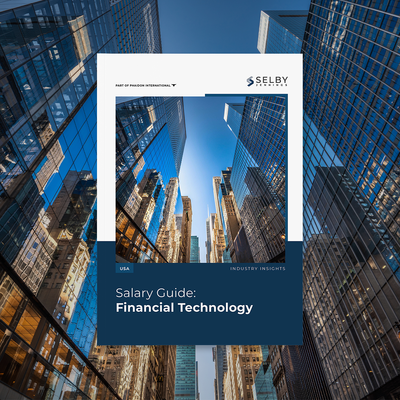hiring advice
Wealth Technology: Reshaping Wealth Management
What is Wealthtech?Wealth Technology, also referred to as Wealthtech, is a term coined to define a segment of Financial Technology (Fintech) that focuses on enhancing wealth management and the investment process. The rise of Wealthtech has facilitated a significant shift in the wealth management industry, creating more client-focused, transparent, and efficient models. By leveraging machine learning algorithms, advanced analytics, blockchain, and other emerging technologies, wealth managers are now more empowered than ever to deliver a seamless, personalized financial service to their clients. Here's how:Digitalization and AutomationIn the digital age, manual processes are being rapidly replaced by automated systems. Automation is significantly impacting wealth management practices, offering ways to eliminate the inefficiencies associated with traditional methods.Automated portfolio management systems, such as robo-advisors, offer algorithm-driven, automated investment advice with minimal human intervention. They use complex algorithms to determine the optimal investment strategy based on the client's risk tolerance, financial goals, and time horizon. This kind of automation not only improves efficiency but also reduces costs, making wealth management services accessible to a larger audience.Enhanced Client EngagementWealthtech has revolutionized client engagement, delivering a more personalized and interactive experience. Advanced data analytics and machine learning tools offer deep insights into a client's investment behavior and financial preferences, allowing wealth managers to tailor their advice accordingly.Client-facing platforms also offer custom interfaces where clients can manage their portfolios, access real-time data, monitor their investment performance, and engage with their advisors through integrated messaging systems. These tech advancements all help to improve client-advisor interactions, accessibility, and transparency.Regulatory Technology (Regtech)The wealth management industry is subject to rigorous regulatory requirements and compliance obligations. With Regtech, wealth managers can automate complex compliance processes, ensure accurate reporting, and reduce the risk of regulatory penalties. Leveraging artificial intelligence and machine learning, Regtech can help wealth management firms navigate the complex, ever-changing regulatory landscape more efficiently.Blockchain and SecuritySecurity is a paramount concern in wealth management, and this is another area where Wealthtech shines. Blockchain technology, famous for its high security, transparency, and immutability, is being utilized to ensure secure transactions, verify identities, and improve data integrity. Smart contracts on blockchain can automate the execution of complex financial contracts, reducing the need for intermediaries and minimizing the potential for fraud.Also read: find out how to write a job description.The Power of AI and Machine LearningAI and machine learning are at the forefront of Wealthtech. They enable predictive analytics, which can forecast market trends, identify investment opportunities, and even warn about potential risks. This enhanced predictive capability enables wealth managers to offer proactive, data-driven advice to their clients.Furthermore, AI-powered chatbots can provide clients with instant responses to their queries, 24/7, improving the client experience and freeing up time for wealth managers to focus on complex tasks.Also explore: how AI can boost diversity in hiring.Wealthtech At Selby JenningsWealthtech has transformed the landscape of wealth management through its integration of cutting-edge technology and a focus on client-centric strategies. This has paved the way for improved operational efficiency, tailored financial services, and cost-effective solutions, opening up new opportunities in the industry.As the Wealthtech industry continues to thrive, it is important to stay abreast of the latest innovations and developments. The WealthTech 100, a prestigious list highlighting the most innovative and influential companies in the sector, showcases the cutting-edge solutions shaping the future of wealth management.To remain competitive and successful in this evolving landscape, wealth management firms must prioritize Wealthtech recruitment. Identifying and retaining talent that possesses a deep understanding of both financial markets and emerging technologies is crucial, and the integration of these technologies into wealth management practices requires a strategic vision, significant investment, and effective change management. However, the potential rewards in terms of improved client satisfaction, efficiency gains, and business growth make it a journey worth embarking on.At Selby Jennings, we understand the evolving needs of the Wealth Management sector. We have the expertise to identify and highlight niche talents, especially those with a strong background in both Wealth Management and Financial Technology. Our rigorous Wealthtech recruitment process ensures that we only recommend candidates who can bring the dual advantage of financial expertise and tech acumen to your firm. Together, we can build you a world-class Wealth Technology team who are not only capable of surviving the digital transformation, but thriving in it. Request a call back today and embrace the future of Wealth Management with Selby Jennings to ensure your business remains successful and competitive.
Read More


















